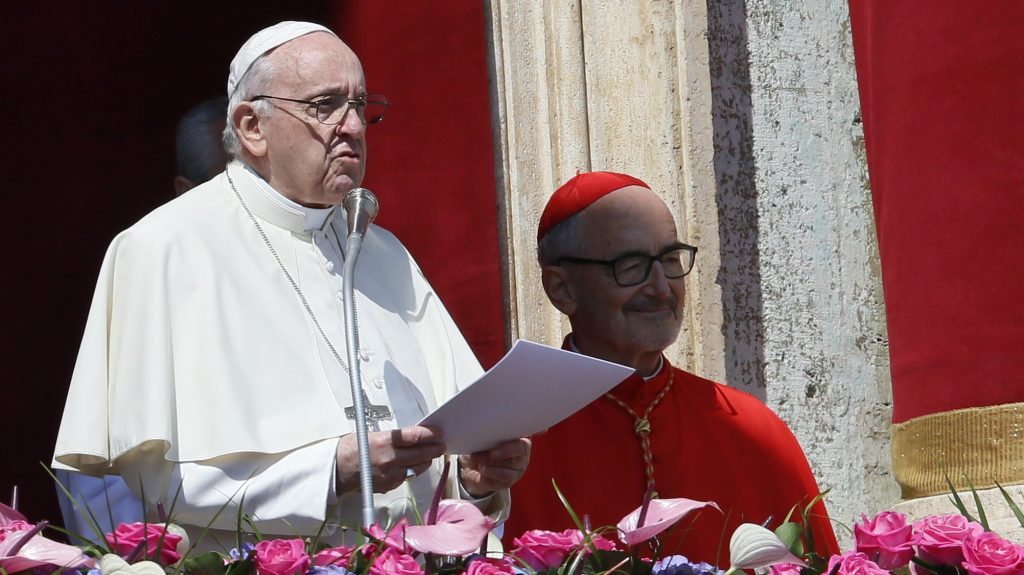On Easter Monday, Pope Francis called for reconciliation instead of war, but didn’t specifically mention the conflict in Ukraine.
“May the grace of the risen Lord bring comfort and hope to those who are suffering, so that no one is abandoned,” Francis said at noon Rome time. “May disputes, wars, conflicts, give way to understanding and reconciliation.”
The pope noted that what Jesus did with his “Calvary and resurrection,” is to reconcile humanity, both with God the Father and with each other.
“Reconciliation,” is the word he used to end the Regina Coeli, a Marian prayer that replaces the traditional Angelus prayer during the 50 days following Easter.
“God won the decisive battle against the spirt of evil,” he said. “Let us allow him to win, let’s give up our human plans and convert to his design of peace and justice.”
Francis’s words came as he addressed the thousands of people who had gathered in St. Peter’s Square on Monday, known throughout Italy as Pasquetta, or little Easter.
Before the prayer, the pope reflected on the joy of Easter, saying that it “is not to be kept to oneself. The joy of Christ is strengthened by giving it, it multiplies sharing it. If we open ourselves and carry the Gospel, our hearts will open and overcome fear.”
Like the women who went to Jesus’ tomb to find that he had risen from death, Francis said, Christians are called to “not be afraid,” and to proclaim the joy of his resurrection against falsehood just as in the “counter-proclamation” narrated in the Gospel, that of the soldiers who were paid to say Christ’s body was stolen during the night by his disciples.
“Here is the falsehood, the logic of concealment that opposes the proclamation of truth,” Francis said. “It is a reminder for us also: Falsehoods – in words and in life – taint the announcement, they corrupt within, leading back to the tomb. The Risen One instead wants us to come out of the tombs of falsehood and duplicity.”
It is right, he said, for people to be scandalized when the news media uncover deceit and lies in the lives of persons and society, but it is important to also recognize one’s own falsehoods.
Visibly veering off his prepared remarks, Francis said that falsehood “takes us backwards, leads us to death, the grave,” while with his sacrifice, Christ wants to free humanity of these false dependencies.
“In front of the risen Lord there is this other ‘god,’ the god of money, who makes everything dirty, who ruins everything, who closes the doors to salvation,” he said. “And this is true of everything. The temptation to worship this money god in everyday life.”

